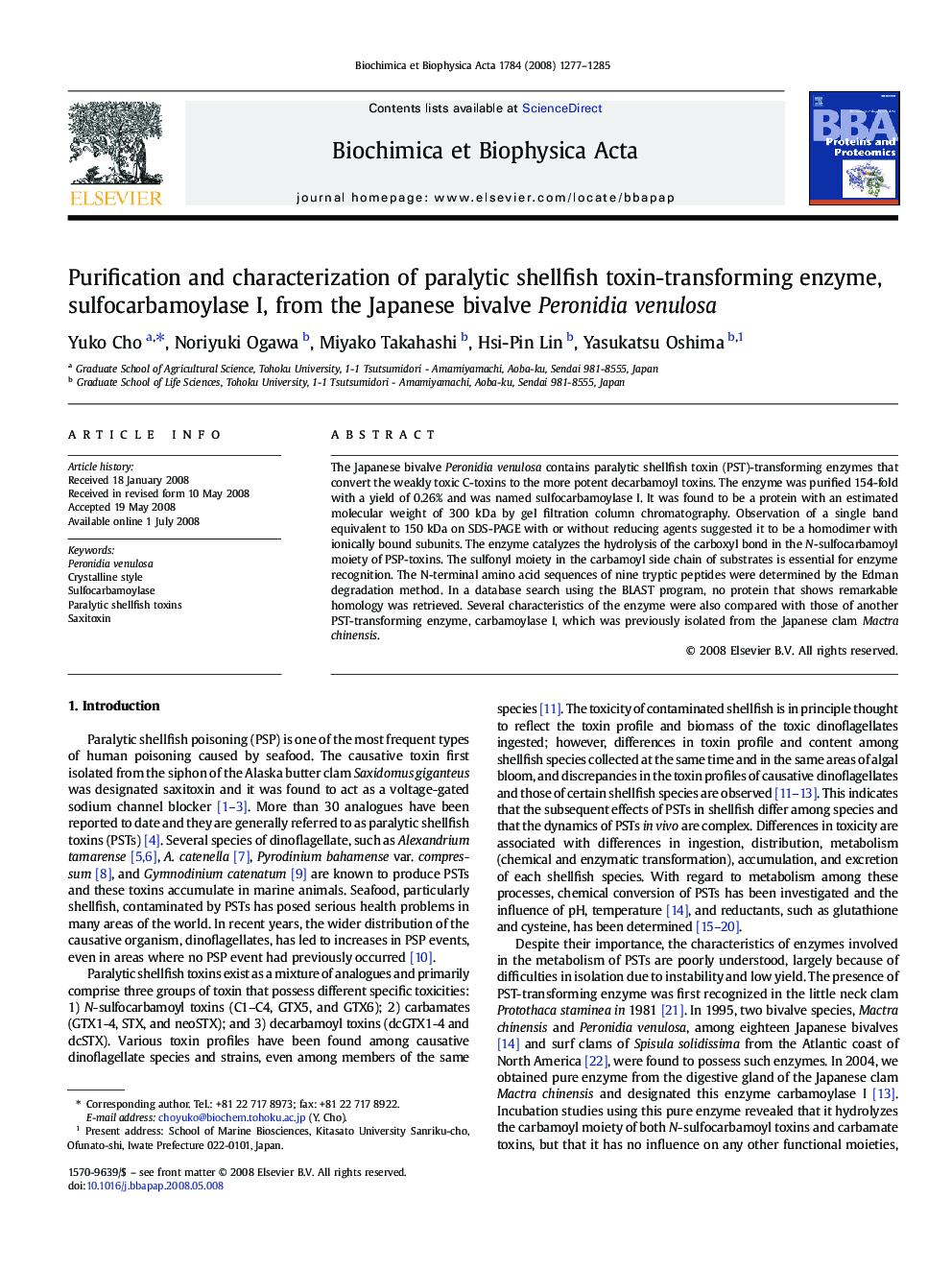| کد مقاله | کد نشریه | سال انتشار | مقاله انگلیسی | نسخه تمام متن |
|---|---|---|---|---|
| 1179092 | 962755 | 2008 | 9 صفحه PDF | دانلود رایگان |

The Japanese bivalve Peronidia venulosa contains paralytic shellfish toxin (PST)-transforming enzymes that convert the weakly toxic C-toxins to the more potent decarbamoyl toxins. The enzyme was purified 154-fold with a yield of 0.26% and was named sulfocarbamoylase I. It was found to be a protein with an estimated molecular weight of 300 kDa by gel filtration column chromatography. Observation of a single band equivalent to 150 kDa on SDS-PAGE with or without reducing agents suggested it to be a homodimer with ionically bound subunits. The enzyme catalyzes the hydrolysis of the carboxyl bond in the N-sulfocarbamoyl moiety of PSP-toxins. The sulfonyl moiety in the carbamoyl side chain of substrates is essential for enzyme recognition. The N-terminal amino acid sequences of nine tryptic peptides were determined by the Edman degradation method. In a database search using the BLAST program, no protein that shows remarkable homology was retrieved. Several characteristics of the enzyme were also compared with those of another PST-transforming enzyme, carbamoylase I, which was previously isolated from the Japanese clam Mactra chinensis.
Journal: Biochimica et Biophysica Acta (BBA) - Proteins and Proteomics - Volume 1784, Issue 9, September 2008, Pages 1277–1285